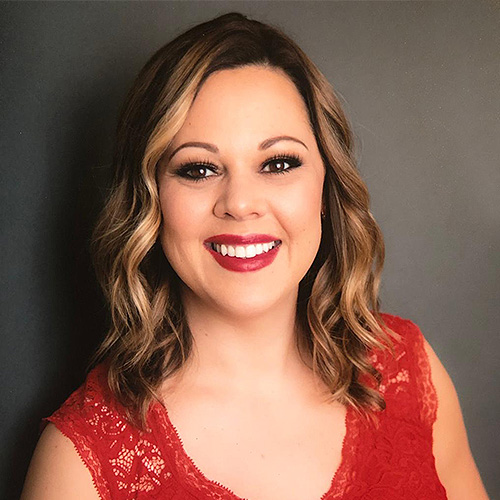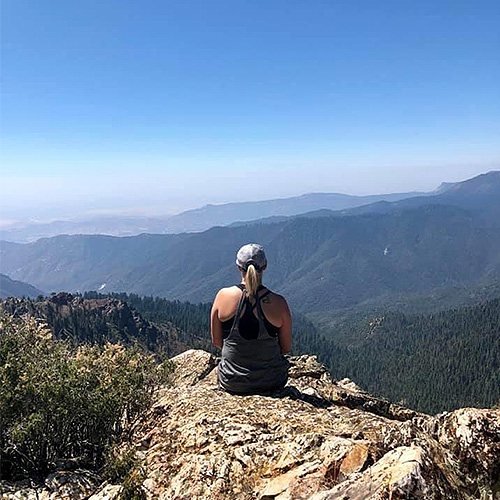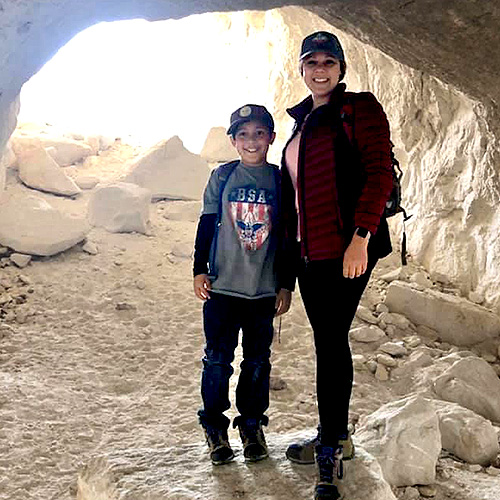Young Stroke Survivor Returns to Work as an Accountant

In September 2016, 29-year-old accountant Kimberly Torella woke up feeling extremely dizzy. She assumed the symptom was related to her hypoglycemia, a condition in which blood sugar (glucose) levels drop below average. So, she went about her morning as usual – eating breakfast and dropping her son off at Cub Scouts. Kimberly's dizziness persisted, however, and she also began experiencing an intense and excruciating headache. This caused her to seek treatment at her local urgent care, where she was misdiagnosed and sent home. "I went to sleep that night, and when I woke up, the left side of my body was paralyzed," Kimberly said.
Kimberly had suffered a stroke, damage to the brain from interruption or reduction of blood supply.
After spending time at a rehabilitation hospital in Bakersfield, California, Kimberly was admitted to the Outpatient Program at CNS Bakersfield, a day treatment program with intensive therapies offered up to five days a week, three hours a day in the clinic.
When Kimberly arrived at CNS, she was in a wheelchair. But, after several months of physical therapy, she was walking independently. "From a wheelchair, I learned to stand, to step, then I started walking with a walker, then progressed to using only a cane, and finally to walking without any assistance," Kimberly shared.
 Kimberly's stroke also left her with cognitive deficits, including Aphasia, a language disorder that affects communication ability. "I noticed that I would say the wrong word without meaning to, and I had trouble with transposing numbers and memory issues," Kimberly said.
Kimberly's stroke also left her with cognitive deficits, including Aphasia, a language disorder that affects communication ability. "I noticed that I would say the wrong word without meaning to, and I had trouble with transposing numbers and memory issues," Kimberly said.
With a successful accounting career before her stroke, Kimberly remembers feeling frustrated with a cognitive therapy activity that involved repeating a list of numbers in a specific order. "Numbers are my life, and they sounded like a foreign language to me," Kimberly said. "But, over time, I was able to work up to successfully mastering that activity," she continued.
"Looking back, I remember thinking my career was over and that I couldn't understand numbers anymore, but I got it all back!"
Kimberly continues to progress, staying active in her community.
"I've become really passionate about spreading stroke awareness," she said. I was in my 20's when I had my stroke, and it's happening to people younger and younger," she said.
 Over the years, Kimberly has participated in magazine and television interviews, and in 2019, she was a keynote speaker at the annual American Heart Association women's luncheon.
Over the years, Kimberly has participated in magazine and television interviews, and in 2019, she was a keynote speaker at the annual American Heart Association women's luncheon.
"One thing I'm focused on is trying to help people understand that there are symptoms to look out for other than the commonly publicized stroke warning signs, such as issues with balance and vision," she said.
"We have the tools to prevent it if we can identify it," Kimberly said.
In August 2019, Kimberly successfully returned to work as a full-time accountant. Kimberly is also a dedicated mom and is committed to staying physically active - enjoying regular, 5-mile-long hikes with her son.

